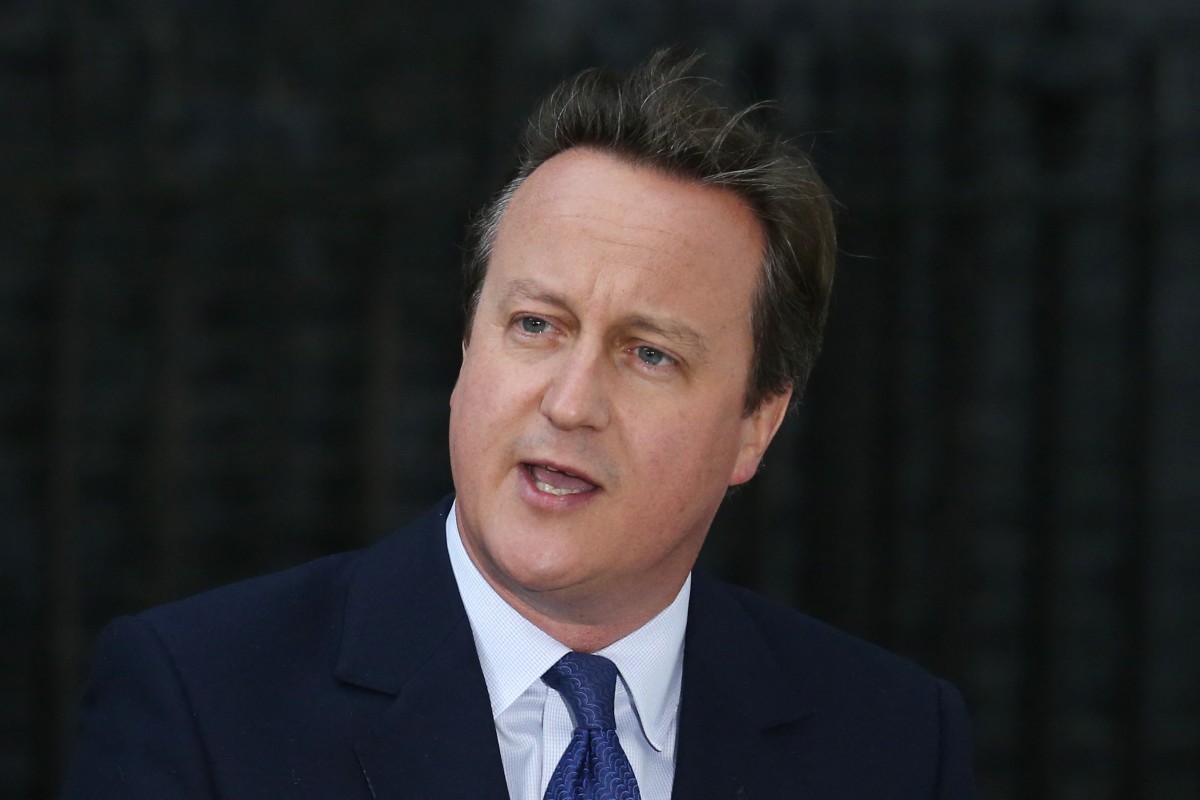Former UK Prime Minister David Cameron appointed foreign secretary

Cameron, who was Britain's leader from 2010 to 2016 before quitting after losing the Brexit referendum, replaces James Cleverly who was appointed interior minister in an unexpected move.
Former UK prime minister David Cameron made a surprise return to frontline politics Monday after British leader Rishi Sunak appointed him foreign secretary in a government reshuffle.
Cameron, who was Britain's leader from 2010 to 2016 before quitting after losing the Brexit referendum, replaces James Cleverly -- who was appointed interior minister -- in an unexpected move.
More To Read
- UK announces biggest overhaul of its legal migration model in 50 years
- Kenya-UK trade hits Sh340 billion for the first time
- Revealed: How Kenyan detectives helped nab cocaine courier at London's Heathrow
- UK commits $30 million to boost Somalia’s security transition and fight Al-Shabaab
- UK to recognise Palestine state unless Israel stops Gaza war
- UK doctors use three-person DNA technique to prevent deadly inherited disease in infants
Cameron, 57, a former public relations adviser, has kept a low profile since resigning in 2016 -- mostly confining himself to writing his memoirs and a number of business roles.
He called the referendum that resulted in Brexit as a way of uniting his Conservative Party, betting that he would win easily with the powers of persuasion that won him two elections.
But he, and the rest of the pro-EU camp, lost the vote on June 23, 2016, and Cameron announced his resignation as prime minister within hours.
He handed power over to Theresa May the following month.
Cameron's first election victory in 2010 ended 13 years of Labour government. He had been widely praised for giving his party a broader centrist appeal.
The Prime Minister has asked me to serve as his Foreign Secretary and I have gladly accepted.
— David Cameron (@David_Cameron) November 13, 2023
We are facing a daunting set of international challenges, including the war in Ukraine and the crisis in the Middle East. At this time of profound global change, it has rarely been more…
The son of a stockbroker, Cameron was educated at elite boarding school Eton and Oxford University, where he was admitted to the Bullingdon Club, a hard-drinking, socially exclusive student group.
He worked for the Conservatives as an advisor before a stint in public relations, which ended when he was elected to parliament in 2001.
Cameron rose swiftly through the ranks of the party -- which was then struggling badly against then Prime Minister Tony Blair's Labour government -- and was elected leader in 2005 at the age of 39.
He tried to "detoxify" the party brand in part by avoiding discussion of the EU, which had split the Conservatives since Margaret Thatcher's premiership in the 1980s.
At the 2010 general election, Cameron became the youngest premier for 200 years, but the centre-right Conservatives did not win enough seats to govern alone and had to form a coalition with the centrist Liberal Democrats.
The coalition was dominated by spending cuts as Britain emerged from recession, while foreign policy debate was largely hijacked by Conservative wrangling over the EU.
A previous risky referendum gamble paid off when Scotland voted to stay as part of Britain in 2014.
After five years in coalition, the Conservatives won a surprise clear majority in the May 2015 general election, allowing them to rule alone.
The win meant that the EU referendum -- first promised by Cameron in 2013 to placate his restive party, but which many in Westminster said he never believed would happen -- became a reality.
Brexit
Cameron spent much of the rest of 2015 lobbying other European countries for a deal to improve Britain's relations with the EU.
Sealed in February 2016, this allowed him to argue going into the referendum that Britain had a "special status" in the 28-country bloc, notably allowing it to limit benefit payments to EU migrants.
But the deal was derided as "thin gruel" by some Conservative MPs.
The bitterest blows to Cameron came as campaigning got under way.
Some of his most loyal lieutenants including justice minister Michael Gove -- godfather to one of Cameron's children -- said they would campaign for Brexit.
Then Boris Johnson, who went on to become prime minister but who at the time was London mayor, sprung a surprise by also backing "Leave".
During the campaign, Cameron led from the front with a barrage of speeches arguing that Britain's economy would be badly hit by Brexit.
However, he failed to counter the "Leave" camp's argument that immigration from EU countries needed to be cut to reduce the strain on public services and that this could only happen if Britain left.
On returning to the government Monday, Cameron said he was "motivated" by public service and had "gladly accepted" Sunak's invitation to serve as foreign secretary.
Story by AFP
Top Stories Today














































